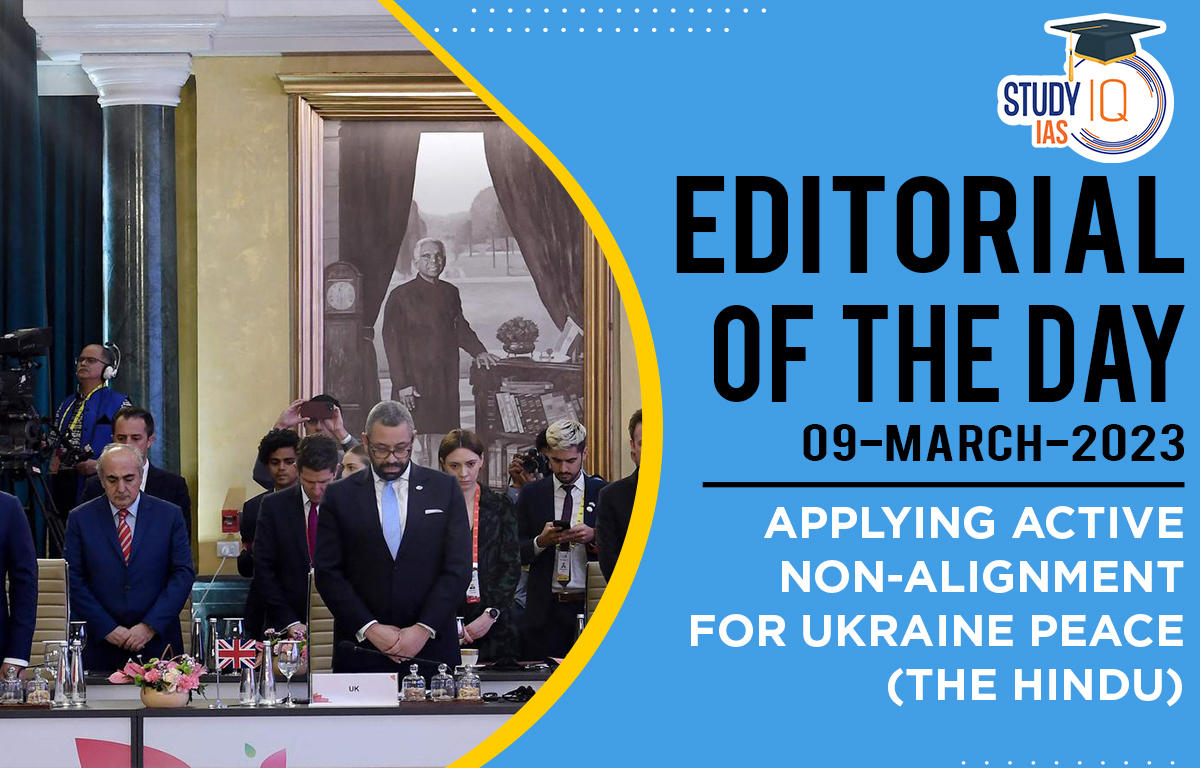Table of Contents
During the Munich Security Conclave, the members of the North Atlantic Treaty Organization (NATO) expressed concerns over the reluctance of the Global South to align itself with the G-7 on the war in Ukraine.
- Majority of countries across the globe have condemned Russia for the Ukraine invasion but very few countries in Asia, Africa and Latin America support the political and economic sanctions imposed on Russia by the G-7.
The Developments over the course of Ukraine War
- The developing world, and especially Africa, Asia and the Middle East, has been the site of many wars in the course of the past 70 years.
- None of these wars were considered important enough that demanded a global involvement to bring it to an end. But a war in Europe breaks out and all countries are expected to support Ukraine.
- Developed nations are unable to come to terms that developing nations are unwilling to wage economic war against Russia, let alone provide defence support.
- Ukraine has tried hard to garner support of developing world, including Africa, but could not gather support.
- It has gone to the extent of asking Latin American and Caribbean nations “to leave behind their so-called neutrality and put themselves on the right side of history”.
The concept of Active Non-Alignment (ANA)
- Origin: The concept originated in 2019 and was developed in 2020 in response to the U.S.-China struggle for primacy, in which Latin American countries were caught in the middle.
- Self-interests: ANA called for Latin American countries not to fall for pressure tactics from either Washington or Beijing and to stick to their own interests.
- ANA was inspired from Non-Aligned Movement (NAM), but was modified to suit the crisis at hand.
- Neutral Position: ANA facilitated participation of Latin American countries in the China-Community of Latin American and Caribbean States (CELAC) ministerial forum in Mexico City, and also the Democracies Summit in Washington DC, without any contradiction.
- Significance: All these events made ANA to be referred to as “the region’s most significant foreign policy development since the end of the Cold War”.
Role of India in ANA
- ANA is not limited to Latin America and major developing countries such as India plays a key role in it, having taken a clear stand of non-alignment on the war.
- India has adopted this position despite its closer ties with the U.S. in recent years, and its membership in the Quadrilateral Security Dialogue (“the Quad”).
- Being the chair of this year’s G-20, India is trying to balance the interests of the developed and developing nations, as evident during the G-20 Finance Ministers meeting in Bengaluru.
Role for BRICS Group
- The BRICS Group, which has emerged as the voice of Global South, has the potential to play a critical role in obtaining a mediated solution to the Ukraine conflict.
- Brazil has shown interest in promoting a peaceful solution. China has developed its own peace plan. India is in a good position to act as a peace broker.
Conclusion
- The role of ANA is not limited to passive neutrality but generating pro-active attitude aimed at solving problems and obtaining solutions the world needs.
- The current solutions are either a Ukrainian victory, which will weaken Russia permanently or a compromised peace solution that is acceptable to both parties.
- The chosen option will depend on the ability of the Global South to not let itself be drawn into this conflict, but rather aim for a mediated outcome.





















 WhatsApp
WhatsApp